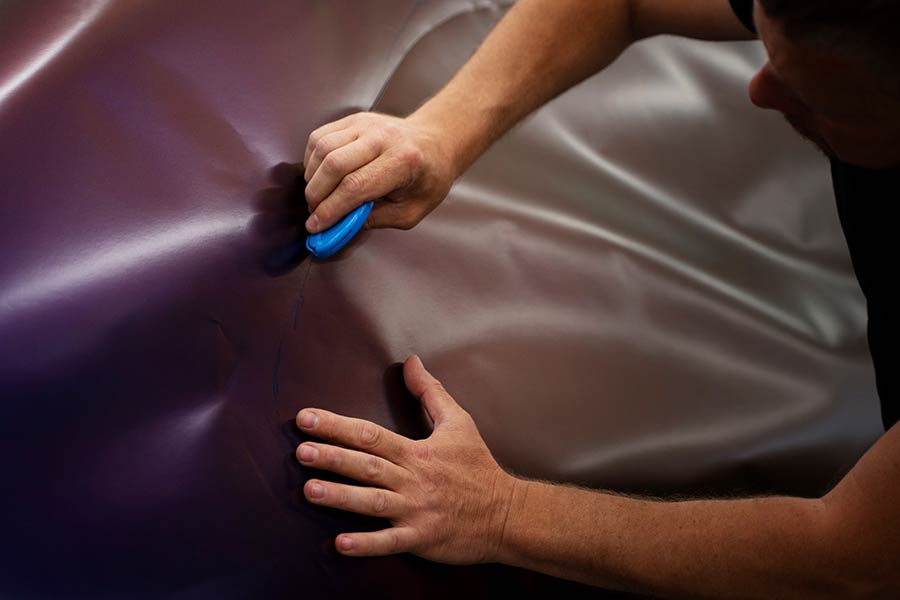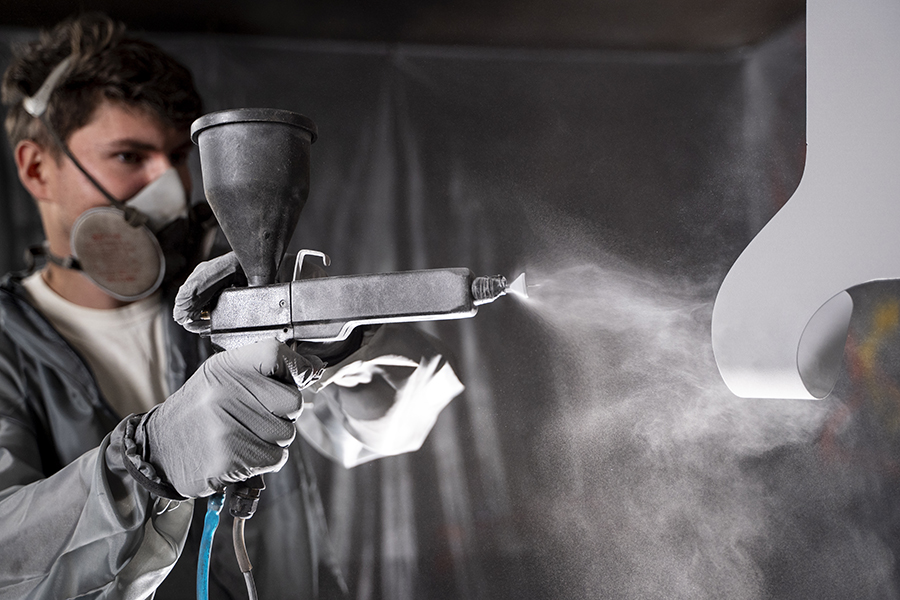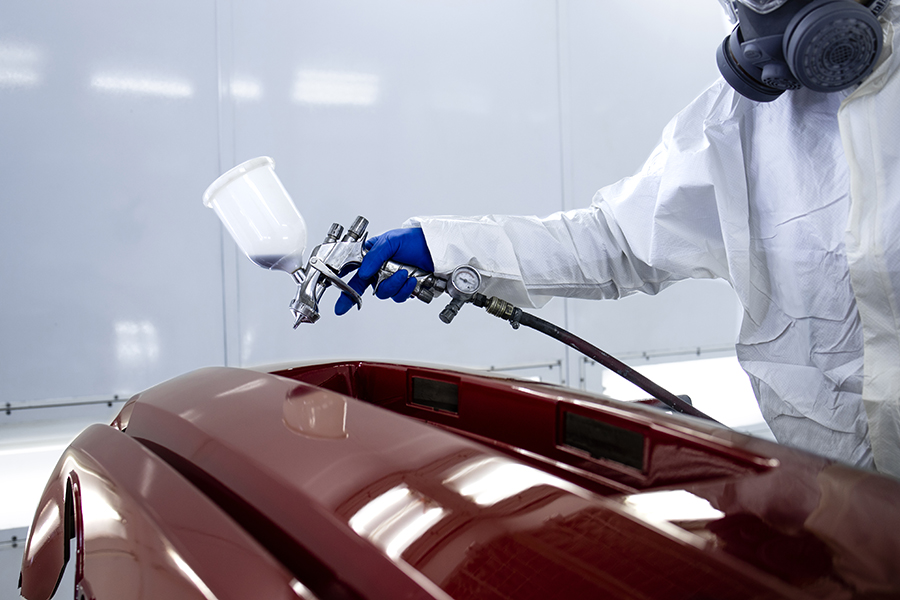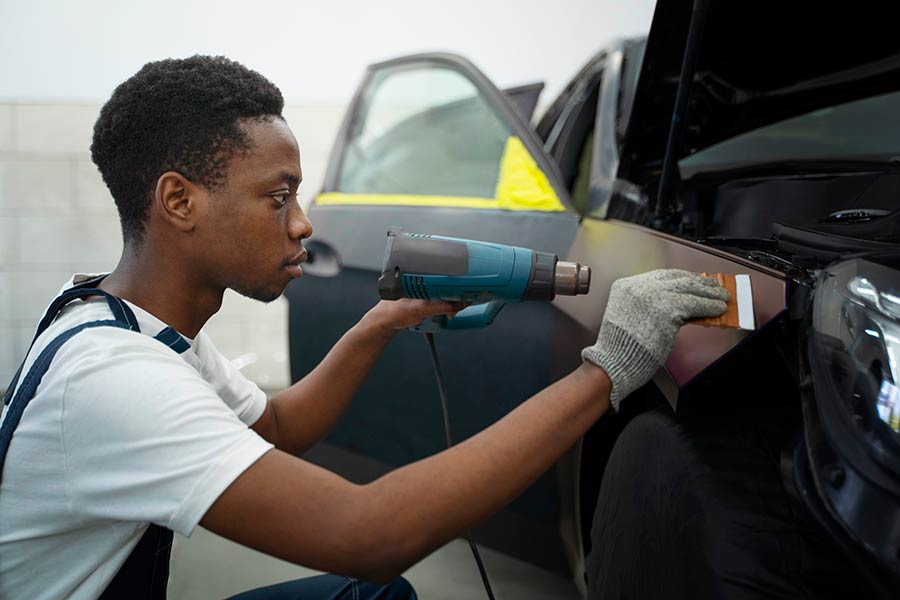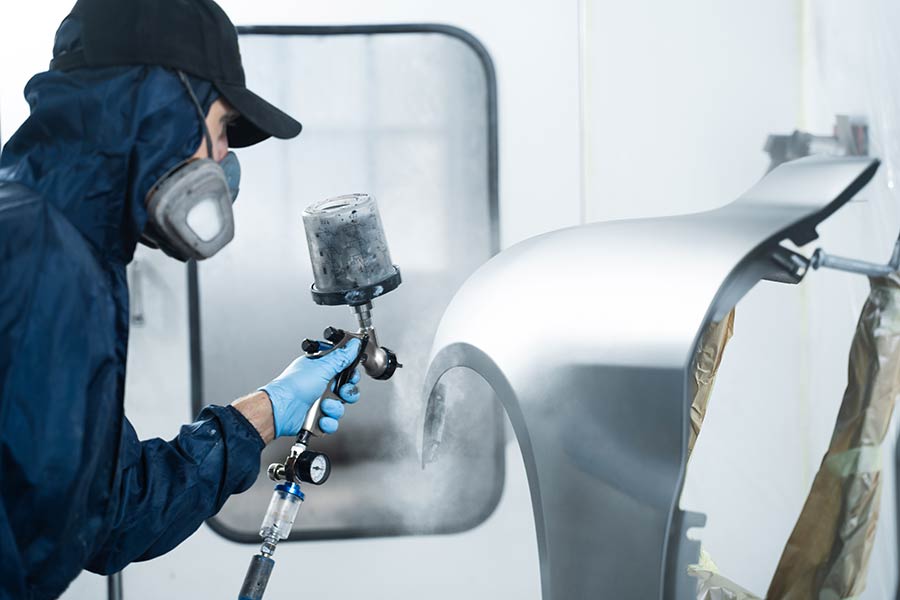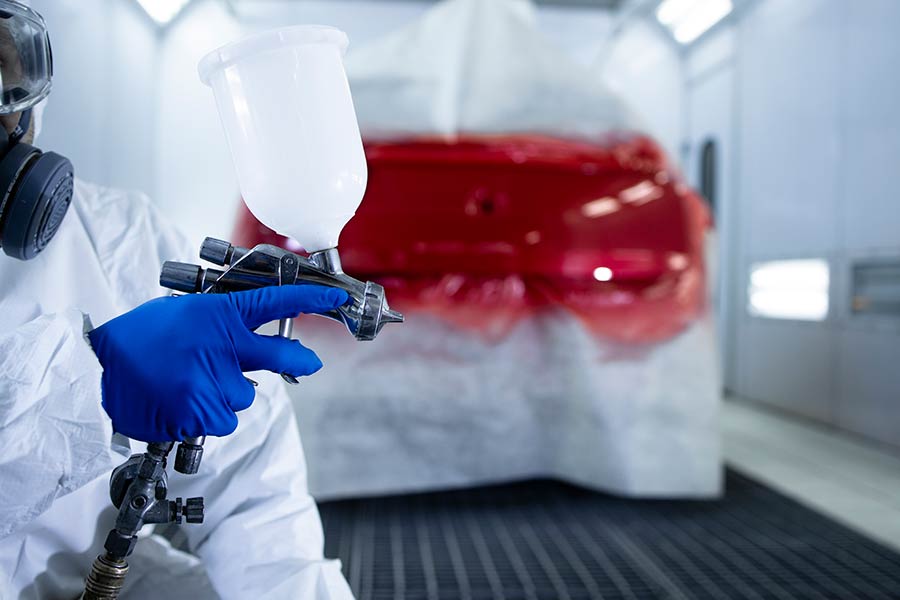Your car’s exterior tells a story - but maybe it’s not the story you want to share. Whether it’s showing signs of age, battle scars from parking lot mishaps, or just needs a fresh look, a professional paint job can make your vehicle look new again.
Finding quality car repainting near me used to be challenging, but today’s professional auto paint services offer advanced solutions for every budget and need. From modern paint technologies to expert application methods, these services can transform your car’s appearance completely.
This guide walks you through everything about professional car repainting - from paint types and application processes to costs and quality standards. You’ll learn what to expect, how to choose the right service, and what makes a great paint job stand out from an average one.
Understanding Professional Car Paint Types
When I look at modern automotive paint technology, I’m amazed by how far we’ve come. Today’s professional paint shops offer cutting-edge solutions that weren’t available just a few decades ago. Let me walk you through the fascinating world of automotive paint types.
Modern automotive paint technologies
The paint industry has made remarkable progress with water-based formulations and advanced polymers. These new paints offer superior protection while being environmentally friendly. I’ve seen how modern paint technologies now include self-healing capabilities and nano-technology components that make your car’s finish more resilient than ever before.
Single-stage vs. base coat-clear coat systems
Let me break down the main differences between these two systems:
| Feature | Single-Stage | Base Coat-Clear Coat |
|---|---|---|
| Layers | One layer combining color and gloss | Separate color and protective layers |
| Durability | Good for solid colors | Superior protection for all finishes |
| Maintenance | Easier to touch up | More complex repair process |
| Appearance | Traditional look | Deep, glossy finish |
Paint durability factors
The longevity of your car’s paint depends on several critical factors:
- Environmental Protection: Modern paints resist UV rays, extreme temperatures, and chemical exposure
- Application Quality: Professional application techniques, including proper surface preparation
- Paint Chemistry: Advanced crosslinking technologies that create stronger paint bonds
- Protection Systems: Additional protective layers that shield against environmental damage
When you’re searching for car repainting near me, understanding these paint types helps you make informed decisions. I’ve noticed that most professional shops now use base coat-clear coat systems because they provide better protection and a more attractive finish. The clear coat acts as a sacrificial layer, protecting the color coat underneath while maintaining that showroom shine you love.
Professional Paint Process Steps
I’ve spent years perfecting the art of automotive painting, and I can tell you that the process is both a science and an art. Let me walk you through the professional steps that transform a vehicle from dull to dazzling.
Surface preparation and cleaning
The foundation of an outstanding paint job lies in meticulous preparation. When I work on cars at my local paint shop, I start with these critical steps:
- Remove all surface contaminants with specialized cleaners
- Sand the surface to create proper adhesion
- Clean joints and recessed areas with compressed air
- Wipe down with wax and silicone removers
Primer application techniques
The primer stage makes or breaks a paint job. I mix primer according to strict ratios:
| Component | Standard Ratio | Temperature Adjustment |
|---|---|---|
| Primer | 2 parts | +/- 5?sed on temp |
| Hardener | 1 part | No adjustment |
| Thinner | 0-5% | Based on conditions |
I maintain the spray gun at 6-8 inches from the surface, moving in smooth, even strokes. The booth temperature stays between 20-23°C for ideal application conditions.
Paint and clear coat application
For the final stages, I focus on precise application methods. The base coat goes on in light, even layers, with each coat allowed to flash off properly. When applying clear coat, I keep these factors in mind:
The first layer should be lighter to wet the surface, while the second carries more product. I maintain consistent gun speed and distance throughout the process. The clear coat needs proper temperature control - around 20-25°C - for the best results.
Between coats, I allow proper flash-off time, typically 5-10 minutes depending on conditions. This patience pays off in the final finish. When looking for car repainting near me, these professional techniques set quality shops apart from average ones.
Paint Protection Methods
After investing in a professional paint job, I know you’ll want to protect that beautiful finish. Let me share the most effective protection methods I’ve seen in my years of experience.
Ceramic coating options
I’ve watched ceramic coating technology transform paint protection. These liquid polymers bond chemically with your car’s paint, creating a shield that’s incredibly tough. The coating contains silicon dioxide, which forms a glass-like layer that stops UV rays, chemicals, and even light scratches from damaging your paint.
| Protection Method | Duration | Resistance Level |
|---|---|---|
| Ceramic Coating | 2-5 years | Very High |
| Paint Sealant | 3-6 months | Moderate |
| Traditional Wax | 1-3 months | Basic |
Paint sealant applications
When my clients ask about paint sealants, I tell them straight - these synthetic polymers work wonders for medium-term protection. They’re like a tough plastic wrap for your car’s paint. The application process takes about 1-2 hours, and I make sure to spread it thin and evenly. What I love about modern sealants is their incredible water-beading properties.
Maintenance requirements
I always tell my clients that protection is only as good as its maintenance. Here’s what I recommend for long-lasting results:
- Clean your vehicle every 2-3 weeks with pH-neutral car shampoo
- Check coating condition monthly for any damage
- Apply paint sealant boosters every 3-4 months
- Use only microfiber cloths for cleaning
- Schedule professional inspections twice yearly
The best part? When you’re searching for car repainting near me, I can help you choose the right protection method based on your driving conditions and maintenance preferences. Both ceramic coatings and paint sealants make regular cleaning easier - dirt and contaminants have trouble sticking to these protective layers.
I’ve seen how these protection methods keep cars looking fresh years after their paint job. The key is choosing the right protection level for your needs and following a consistent maintenance schedule. With proper care, your new paint job will stay glossy and protected against environmental damage.
Cost Factors in Professional Painting
Let me break down the real costs of professional car painting, based on my years of experience working with various auto body shops. I want you to understand exactly what you’re paying for when investing in a quality paint job.
Paint material expenses
The quality of paint makes a significant difference in both cost and results. I’ve seen basic synthetic enamel paint jobs cost between $300-$700 for an average sedan. When my clients ask about premium paints, I tell them straight: high-quality materials can push the cost into thousands, but the durability is worth it.
| Quality Level | Paint Cost Range | Includes |
|---|---|---|
| Basic | $300-$1,000 | Single coat, minimal prep |
| Standard | $1,000-$4,500 | Multiple coats, better prep |
| Premium | $5,000-$20,000 | Show quality, multiple layers |
Labor and time considerations
When looking at car repainting near me, I always check the experience level of the painters. Labor costs reflect expertise and time investment:
- Basic jobs take 2-3 days with minimal prep
- Standard paint jobs need 4-5 days for proper preparation
- Premium finishes can take up to a month for perfection
Additional service charges
I’m always upfront about extra costs that might come up:
The base price typically doesn’t include: * Surface repairs ($300-$1,000) * Color matching for specialty* Paint protection finishes ($100-$200 for wax) * Ceramic coating ($1,000-$3,000)
When my clients want the best value, I recommend mid-grade services starting around $2,500. This price point hits the sweet spot between quality and cost. For those seeking absolute perfection, I’m honest about premium services reaching $20,000 or more.
Remember, size matters - painting a compact car costs less than an SUV simply because there’s less surface area to cover. I’ve seen prices vary by 30-40?tween vehicle sizes.
Quality Control Standards
Quality control makes the difference between an average paint job and one that turns heads. I’ve seen countless paint jobs, and I’m going to share what separates the best from the rest.
Paint thickness measurements
In my professional paint shop, I measure every vehicle’s paint thickness. Modern cars typically show readings between 110-125 microns, though I’ve noticed this trending lower on newer models. Here’s what I look for:
| Vehicle Age | Standard Thickness | Acceptable Range |
|---|---|---|
| New Models | 95-110 microns | 89-125 microns |
| 5+ Years Old | 110-125 microns | 100-140 microns |
| Classic Cars | 125-150 microns | 120-160 microns |
Color matching accuracy
I use advanced spectrophotometer technology to match colors perfectly. When you’re looking for car repainting near me, this precision matters. My digital color matching process captures:
- Base color variations down to microscopic levels
- Multiple angle measurements for metallic finishes
- Paint formula adjustments for age and weathering
Final inspection points
My final inspection process follows strict standards. I check:
-
Surface Appearance * Paint uniformity across panels * Gloss levels (measured with a glossmeter) * Distinctiveness of image (DOI) readings
-
Technical Measurements * Paint thickness consistency * Color match verification * Clear coat uniformity
I’ve developed this system through years of experience, and it’s why my clients trust me with their vehicles. Each car goes through multiple inspection stages before I consider the job complete. I measure gloss levels with specialized equipment, checking for a maximum of 15 units difference between panels.
The paint’s distinctiveness of image (DOI) tells me how mirror-like the reflection is. I won’t let a car leave my shop unless it meets strict DOI standards. For zones A and B (visible areas), I accept nothing less than perfect color matching to factory standards.
My quality control process includes checking every panel with specialized tools. I look for consistency in the clear coat application, which should be about 40% of the total paint thickness. This attention to detail is what sets professional work apart from amateur attempts.
Conclusion
Professional car repainting stands as a significant investment in your vehicle’s appearance and value. My years working with paint technologies and application methods have shown that quality matters at every step - from initial surface preparation to final protective coatings.
Modern paint systems offer remarkable durability and stunning finishes, while professional protection methods keep your car looking fresh for years. Though costs vary based on quality levels and vehicle size, mid-range services around $2,500 typically provide excellent value for most car owners.
Quality control remains the cornerstone of professional painting. Through precise measurements, color matching, and rigorous inspections, professional shops deliver results that meet strict industry standards. Ready to give your car a fresh look? Schedule repair with a trusted professional paint shop near you - your vehicle deserves expert care and attention to detail.
Remember that a professional paint job is more than just color - it’s a complete transformation that protects your car while maintaining its value. My experience shows that choosing the right paint shop and protection methods makes all the difference in achieving lasting results.
## FAQs
-
How much does it typically cost to have a car professionally repainted? The cost of a professional car repaint can vary widely depending on the quality level and size of the vehicle. Basic paint jobs can range from $300 to $1,000, standard quality jobs from $1,000 to $4,500, and premium finishes can cost between $5,000 and $20,000. For most car owners, a mid-grade service starting around $2,500 offers a good balance between quality and cost.
-
What are the different types of automotive paint systems used by professionals? Professional auto painters typically use two main paint systems: single-stage and base coat-clear coat. Single-stage systems combine color and gloss in one layer, while base coat-clear coat systems have separate color and protective layers. Most modern professional shops prefer the base coat-clear coat system as it provides better protection and a more attractive finish.
-
How long does a professional car paint job usually take? The duration of a professional paint job depends on the quality level and extent of work required. Basic jobs can take 2-3 days with minimal preparation. Standard paint jobs typically need 4-5 days for proper preparation and application. Premium finishes can take up to a month to achieve perfection, especially for show-quality results.
-
What protection methods are available after a professional paint job? After a professional paint job, there are several protection methods available. Ceramic coatings offer the highest level of protection, lasting 2-5 years. Paint sealants provide moderate protection for 3-6 months. Traditional wax offers basic protection for 1-3 months. The choice depends on your needs and maintenance preferences.
-
How do professionals ensure color matching accuracy in car repainting? Professional painters use advanced spectrophotometer technology for precise color matching. This process captures base color variations down to microscopic levels, takes multiple angle measurements for metallic finishes, and adjusts paint formulas to account for age and weathering. This ensures that the new paint matches the original color as closely as possible.
-
What quality control measures do professional paint shops use? Professional paint shops employ various quality control measures, including paint thickness measurements, color matching accuracy checks, and final inspection points. They use specialized tools to measure gloss levels, distinctiveness of image (DOI), and paint thickness consistency. Multiple inspection stages are conducted before a job is considered complete to ensure it meets strict industry standards.
-
How can I maintain my car’s new paint job? To maintain a new paint job, it’s recommended to clean your vehicle every 2-3 weeks with pH-neutral car shampoo, check the coating condition monthly for any damage, apply paint sealant boosters every 3-4 months, use only microfiber cloths for cleaning, and schedule professional inspections twice yearly. Proper maintenance will help keep your car looking fresh for years after the paint job.
-
What factors affect the durability of a car’s paint job? Several factors affect paint durability, including environmental protection (resistance to UV rays, extreme temperatures, and chemical exposure), application quality, paint chemistry (such as advanced crosslinking technologies), and additional protection systems. The use of high-quality materials and professional application techniques significantly contributes to the longevity of the paint job.
